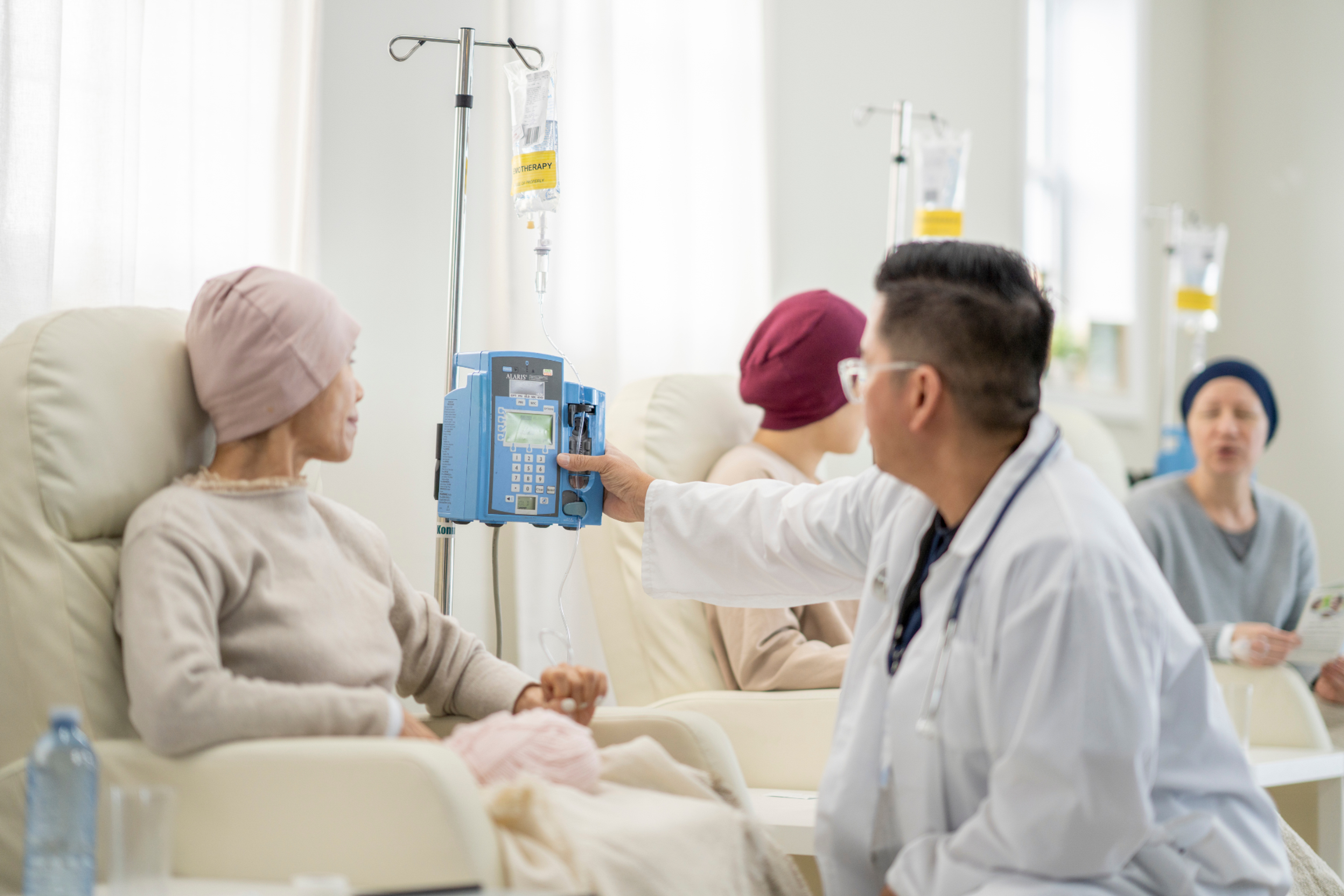Pharmacy Vs. Medical School: Which One is Right for You
Explore the differences between pharmacy and medical school to discover which path aligns with your career goals and interests.
Posted June 13, 2025

Join a free event
Learn from top coaches and industry experts in live, interactive sessions you can join for free.
Table of Contents
Deciding between pharmacy school and medical school can be a difficult choice for aspiring healthcare professionals. Both paths offer rewarding careers in the healthcare industry, but they have distinct differences that may appeal to different individuals. In this article, we will compare the two options, exploring the education and training requirements, career paths and opportunities, financial considerations, and ultimately, how to make the right choice for you.
Pharmacy vs. Medical School Comparison
Before diving into the details, let's take a broad look at the key differences between pharmacy school and medical school.
Pharmacy school focuses on the study of medications, their development, and their safe and effective use. Pharmacists play a crucial role in dispensing medications, providing drug information to healthcare professionals and patients, and ensuring optimal patient outcomes. They are the medication experts, working closely with physicians and other healthcare providers to ensure that patients receive the most appropriate and effective treatment.
Pharmacists are trained in various aspects of medication therapy management, including drug interactions, dosage calculations, and patient counseling. They are knowledgeable about different drug classes, their mechanisms of action, and their potential side effects. In addition to their clinical expertise, pharmacists also have a strong foundation in pharmaceutical sciences, learning about drug formulation, manufacturing processes, and quality control.
Medical school, on the other hand, trains individuals to become doctors who diagnose and treat illnesses, perform surgeries, and provide comprehensive care to patients. They are responsible for managing the overall health and well-being of individuals. Medical students undergo rigorous training in various medical disciplines, including anatomy, physiology, biochemistry, pathology, pharmacology, and clinical medicine.
During their training, medical students gain a deep understanding of the human body and its complex systems. They learn how to interpret medical tests, make accurate diagnoses, and develop treatment plans. Medical school curriculum also emphasizes the importance of patient communication and ethical decision-making.
While pharmacists primarily focus on medication management, doctors have a broader scope of practice. They are trained to diagnose and treat a wide range of medical conditions, from common illnesses to complex diseases. Doctors are also involved in preventive medicine, promoting healthy lifestyles and disease prevention through patient education and counseling.
Both pharmacy school and medical school require years of rigorous study and dedication. However, the career paths and responsibilities of pharmacists and doctors differ significantly. Pharmacists are integral members of the healthcare team, working collaboratively with other healthcare professionals to ensure optimal patient care. Doctors, on the other hand, are at the forefront of patient care, making critical decisions and providing comprehensive medical treatment.
While pharmacy school and medical school share a common goal of improving patient health, they have distinct focuses and responsibilities. Pharmacists specialize in medications and play a vital role in optimizing drug therapy, while doctors are trained to diagnose and treat a wide range of medical conditions. Both professions are essential in providing quality healthcare to patients, working together to achieve the best possible outcomes.
Read: Physician Assistant Vs. MD: Which One Is Right for You?
Education and Training Requirements
To become a pharmacist, you need to complete a Doctor of Pharmacy (Pharm.D.) program, which typically takes four years to complete. During this program, students learn about pharmacology, medication therapy management, and patient care. Additionally, they undergo clinical rotations to gain hands-on experience in various healthcare settings.
Pharmacy school is a comprehensive and demanding educational journey that equips students with the knowledge and skills necessary to excel in the field of pharmacy. The curriculum covers a wide range of subjects, including medicinal chemistry, pharmacokinetics, pharmacotherapy, and pharmaceutical calculations. Students also delve into the intricacies of drug interactions, medication safety, and the legal and ethical aspects of pharmacy practice.
Throughout their education, pharmacy students engage in hands-on learning experiences that allow them to apply their theoretical knowledge in real-world scenarios. They participate in clinical rotations, working alongside experienced pharmacists in hospitals, community pharmacies, and other healthcare settings. These rotations provide invaluable opportunities to develop clinical skills, interact with patients, and collaborate with healthcare professionals as part of a multidisciplinary team.
On the other hand, the path to becoming a doctor involves completing a Bachelor's degree followed by four years of medical school. Medical education focuses on subjects such as anatomy, physiology, biochemistry, and pathology. The rigorous curriculum provides aspiring doctors with a deep understanding of the human body and its intricate workings.
Medical school is a transformative experience that challenges students intellectually and emotionally. It requires countless hours of studying, attending lectures, and participating in clinical rotations. Students learn to diagnose and treat various medical conditions, gaining expertise in areas such as internal medicine, pediatrics, obstetrics and gynecology, and psychiatry.
After graduating from medical school, individuals enter residency programs to specialize in their chosen field. Residency programs vary in duration depending on the specialty, ranging from three to seven years. During this time, doctors-in-training work under the supervision of experienced physicians, honing their clinical skills and deepening their knowledge in their specific area of expertise.
Both paths - pharmacy and medicine - involve rigorous educational requirements, but medical school generally requires a more extensive investment of time and commitment. Regardless of the chosen path, both pharmacists and doctors play crucial roles in the healthcare system, working together to ensure the well-being of patients and the delivery of quality healthcare.
Career Paths and Opportunities
Upon graduating from pharmacy school, pharmacists have various career opportunities. They can work in community pharmacies, hospitals, long-term care facilities, pharmaceutical companies, or even pursue careers in research or academia. Pharmacists also have the option to specialize in areas such as infectious diseases, oncology, or psychiatric pharmacy. The demand for pharmacists remains high, making it a stable and fulfilling career option.
Medical school graduates become doctors and have a broader range of career paths. They can choose to specialize in fields like internal medicine, pediatrics, surgery, radiology, or psychiatry, among others. Doctors can work in hospitals, clinics, private practices, or even explore research and teaching positions. The breadth of options allows doctors to pursue their specific interests and make a significant impact on patient lives.
Financial Considerations
When considering pharmacy school or medical school, it's essential to factor in the financial considerations. Pharmacy school generally has lower tuition costs compared to medical school. Additionally, the shorter duration of the pharmacy program allows graduates to enter the workforce sooner and start earning a pharmacist's salary. This can provide a more immediate return on investment.
On the other hand, medical school tuitioncan be significantly higher, and the longer duration of education prolongs the time spent incurring educational debt. However, doctors typically earn higher salaries, especially with specialty training, which can help offset the financial burden over time.
How to Make the Right Choice
So, which path is right for you? The answer depends on your personal interests, strengths, and long-term goals. Pharmacy school may be a better fit if you have a passion for medications, enjoy patient interaction, and prefer a shorter educational path. It can provide a stable career with various opportunities for growth and specialization.
On the other hand, medical school may be the right choice if you have a strong desire to diagnose and treat illnesses, enjoy the challenge of complex medical cases, and are willing to invest a longer period in your education. Becoming a doctor offers a wider range of career options, potential for higher earnings, and the ability to make a profound impact on patients' lives.
Ultimately, the decision between pharmacy school and medical school should be an informed one, taking into account your passion, skillset, financial situation, and long-term career aspirations. Exploring both options through research, shadowing experiences, and speaking to professionals in each field can help you make an educated decision that aligns with your interests and goals.
Whichever path you choose, remember that both pharmacy and medical school offer valuable contributions to the healthcare industry. Whether you become a pharmacist or a doctor, your expertise will play a vital role in improving patient outcomes and promoting overall well-being.
Get Expert Guidance on Your Healthcare Career Path
Choosing between pharmacy and medical school is a major decision, and one that deserves more than a pros and cons list. It’s about aligning your strengths, interests, and long-term goals with the right career. While research can give you the facts, talking to someone who’s been through the process (or guided others through it) can make all the difference.
Whether you're debating application strategies, unsure how your background fits into either path, or just want to talk through your options, a Leland coach can help you navigate the decision with clarity and confidence.
Browse our expert admissions coaches for pharmacy and med school to get personalized, 1:1 support.
FAQs
What are the admission requirements for pharmacy vs. medical school?
- Medical schools typically require a bachelor's degree with prerequisite coursework, a competitive GPA, and MCAT scores. Pharmacy schools often require specific undergraduate coursework and may require PCAT scores, though some programs have made the PCAT optional.
How do the work-life balances compare between pharmacists and physicians?
- Pharmacists often have more predictable schedules, especially in retail settings, while physicians may work longer and more irregular hours, including nights and weekends.
What are the job outlooks for pharmacists and physicians?
- The demand for physicians remains strong across various specialties. The job market for pharmacists is more competitive, with growth varying by region and practice setting.
Can I switch from pharmacy to medical school or vice versa?
- Yes, switching is possible but may require additional coursework and meeting the admission requirements of the new program.
What are the differences in licensing exams for pharmacists and physicians?
- Pharmacists must pass the North American Pharmacist Licensure Examination (NAPLEX) and, in some states, the Multistate Pharmacy Jurisprudence Examination (MPJE). Physicians must pass the United States Medical Licensing Examination (USMLE) for MDs or the Comprehensive Osteopathic Medical Licensing Examination (COMLEX) for DOs.




















